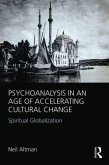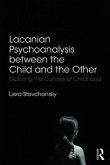This book explores how psychoanalysis can enrich and complement sociocultural psychology. It presents theoretical integrations of psychoanalytical notions in the sociocultural framework, analyzes the historical similarities, if not intricacies, of the two fields, and presents papers that have tried to apply an enriched theoretical framework in developmental and clinical empirical work. The first section presents editors' theoretical proposition for an integration of one particular stream of psychoanalysis within sociocultural psychology, which emphasizes both the dialogical and the semiotic nature of psychological dynamics. The second section pursues this theoretical dialogue through a historical perspective. The third section pursues the implications of this parallel reasoning. It invites researchers that propose further syntheses between some strands of psychoanalysis and approaches within social and cultural psychology. The contributions collected in this section show how sociocultural psychology and psychoanalysis can complement each other, when it comes to tracing the emergence of meaning in actual interactive settings. Showing historical common roots, epistemological similarities, and theoretical complementarities, this book intends to suggests how the encounter and reciprocal contamination between cultural psychology and psychoanalysis could provide innovative theoretical and methodological syntheses. Through the various contributions three directions of development emerge as particularly promising for psychological science. Firstly, the semiotic conceptualization of affects, emerging from several of the contributors, appears to be a significant step ahead in the understanding of the dynamics of sense-making. A second promising direction of development concerns methodology. The reader will find several invitations to rethink the way of analyzing the phenomena of sense-making. Finally, the volume highlights how the connection between theory and practice in psychology is not a mere matter of application. Rather, the psychological intervention could be ¿ needs to be ¿ a theoretical object for cultural psychology, as it already is for psychoanalysis. At the same time, the intervention could be a fertile domain where a psychological practice endowed with reflexive capability generates new theoretical constructions.
Bitte wählen Sie Ihr Anliegen aus.
Rechnungen
Retourenschein anfordern
Bestellstatus
Storno









